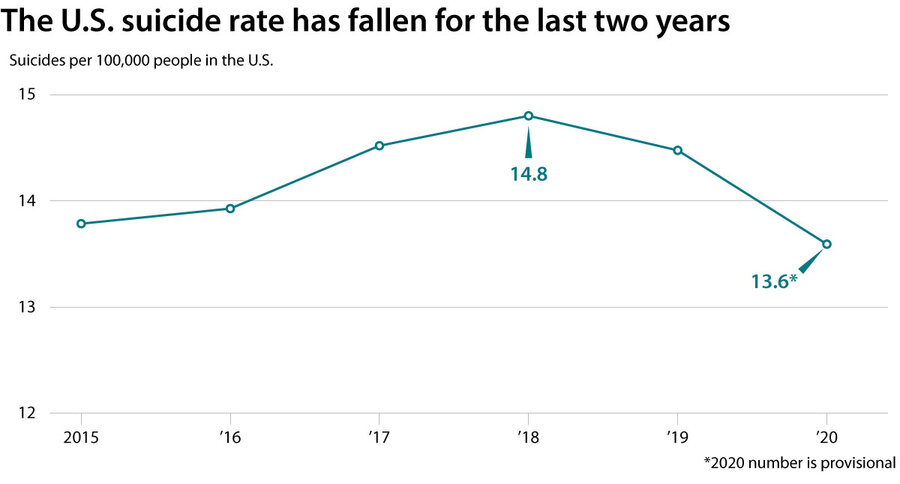Suicides fell in 2020, defying predictions in a year of loss
Loading...
Despite concern that the pandemic would lead to a spike in self-harm, deaths from suicide last year fell to a five-year low, according to a new report from the National Vital Statistics System at the Centers for Disease Control and Prevention.
Dropping from 47,511 to 44,834 – a 5.6% decrease – the total number of suicides in 2020 marked a second straight year of decline, after three consecutive years of increase.
The report’s numbers are still provisional and full data, complete with demographic breakdowns, won’t be available until late this year. The reasons for the decline are not yet clear. Notwithstanding, the decrease marks a rare bit of good health news in 2020, says lead author and health scientist Farida Ahmad.
She cautions that 2020 is difficult to compare to other years. Still, “given a lot of the chatter about mental health and the conversation surrounding it” last year, she says, the total runs counter to what she initially expected.
While total deaths rose precipitously in 2020 due to the pandemic, Americans can take the drop in self-harm as encouragement amid a year of loss.
If you are in crisis, please call the National Suicide Prevention Lifeline at 1-800-273-TALK (8255).









